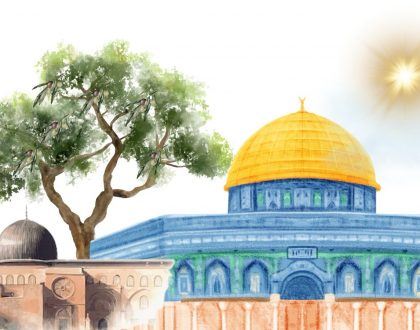The Concept of Charity in Islam
by Ayesha Khan
When I left University and got my first job, one of the first things I did as Muslim, was find a charity which I could donate to regularly, as I would have savings of my own.
I decided that I would sponsor a child and began working for a charity that cares for orphaned and abandoned children. Many many years later I am still with the same charity.
As you know in Islam orphans have a very important status, as they are the most vulnerable people in society. In Islam ensuring that those in society who are in need are given support is of paramount importance. We are not isolated individuals but a part of a global family.
We have a duty to make sure that we don’t only look after ourselves but that we take an interest in what is happening to others around us.
We have been told that wealth is test both for those who don’t have it. Those who don’t have, need to show patience and those who have it are being tested to see how they spend it.
Ultimately we are accountable for everything we do and every penny we spend.
If charity is given continuously be the whole community, it would create an essential circulation of wealth; so that it is not hoarded in bank accounts and spent on luxuries, but is lent and given and filtered to everybody.
It is no coincidence that pillar of Zakat comes immediately after Salah, or the daily Prayer.
There are 82 verses in the Quran in which Zakat is associated with Salah.
What that means is that it is not enough to believe.
We are commanded repeatedly to give in charity.
Through a private act, it strengthens community and also reinforces our faith in God and nourishes our soul by counteracting our desire to consume and accumulate.
Just as fasting encourages us to reflect on what we eat and trains us in self control, spending in obedience to God’s command, takes away greed and love of material wealth.
It ‘cures’ the love of worldly things, which are temporary in return for an eternal reward, thereby bringing us closer to God.
If we look back in history to the time of the Prophet Muhammad*, we find the ultimate examples of generosity. The Prophet himself who overcame so many hardships in his life, united the fragmented society and became the leader of Muslims throughout the Arabian peninsula by the time of his death. You might have expected him to live in a grand palace and wear exquisite robes. In fact he distributed everything he had among the poor. Huge quantities of grain and money were flowing into the central treasury, but the prophet continued to live in great humility, performing the most menial tasks with his own hands; he kindled the fire, swept the floor, milked the ewes, patched his own garments and cobbled his own shoes
When he died, there was not even enough food for a single day and his only possessions were a mule, his sword and shield and a few clothes.
His best friend was Abu Bakr**, who was known for his extraordinary generosity. When the Prophet* and his friends used to gather for the sunrise prayer at the mosque, he would have stopped to give charity on the way even though the day had barely begun. He would go out and deliberately buy slaves just to set them free. On one occasion when the prophet asked his companions what they would donate in charity his friend Umar** declared he would give half of everything he owned, only to discover that Abu Bakr** had donated his entire fortune.
Similarly the Prophet*’s wife Ayesha** would give away anything they had, frequently they would be given gifts of food and money, but every time she received anything, she gave it away. Whatever the sum was large or small. One evening she received a huge gift of 100,000 Dhirams but by night fall she had given it away. No beggar ever left their home empty handed.
One day she was fasting and all there was in the house was a little bit of bread. When a beggar came to them, she gave it away. Her maid then reminded her that she now had nothing to break her fast with in the evening. Ayesha**’s faith in God was so strong, that when someone delivered meat to their home, she commented that God had replaced what she had given away with something better.
One day a beggar came to her home with her two children. All Ayesha** had was 3 dates which she gave to the woman. The two children quickly devoured a date each and still looked hungry so their mother broke her own date in two and gave it to one of the children. And Ayesha** was in tears because she was so moved by this.
The tradition of giving was such an inspiration that centuries later, a young Muslim girl in Morocco who inherited a large fortune donated it to create the first university in the world in 859 AD.
The world is a bit like a game of monopoly. When we are born we enter a game in which as move through life we gain money and we lose money. Some people get wealthy others start running out quite soon. While the game is in play it is a reality for the players. The monopoly money can buy them success. However at some point the game ends. And we remember that the money wasn’t real. It was just toy money and all we were doing was playing a game.
Imagine if during the course of the game someone was keeping a record of what you did. Imagine that every time you gave money to somebody they were putting real pounds aside and the more you lent the money was being stacked up for you.
Ultimately the real winner would be the person who was the most generous.
That’s how we believe charity works. Each time we give to someone we are giving God a beautiful loan. And our real wealth is growing in an invisible bank account. The reality of that account will only become apparent when this life ends.
But if you believe, you realise that the more you give the more you are enriched.
And you realise that the wealth people have in this world is only an illusion. So we don’t need to worry if someone else has the latest model of iPhone or a nicer house, because what we want is the real reward.
Paradoxically, by spending money on something that brings ones no apparent material gain, we are not impoverished by this. On the contrary, God reassures us that we are promised a magnificent reward in multiples both in this life and the hereafter. Zakat enriches the giver by literally bringing growth to wealth. Whereas the withholding of Zakat brings bitterness as well as punishment.
The paradox of giving is something we see in nature.
When a plant grows it can become big and wild. If that plant is given a careful trimming it will actually produce more flowers and fruit.
Wealth is exactly the same. When you cut out bits, you don’t just get a healthier bank balance but what you gave could be enough for someone else to grown their own.
As charity is an act of worship it should always be preceded by a clear and sincere intention.
When we give we get reward, but when we give with the intention of becoming closer to God, we multiply our blessings enormously and in effect turn them into gold!
Which brings us happiness, forgiveness and increased wealth and blessings.
For Muslims giving is part of life. We begin giving from the moment a child is born til they die. Whenever something good happens in our life, we thank God by sharing the blessings he gave us with others.
‘And give them something out of the wealth of Allah which He has bestowed upon you.’ [24:3]
He also says,
‘Believe in Allah and His Messenger, and spend of that whereof He has made you trustees.’ [57:7]
The Prophet Muhammad* also said ‘Give charity when you are healthy and not prone or unwilling to part with your money, because you look to enjoy yourself with your money, and fearful of becoming poor; rather than wait till it is too late, and you are about to die, then you say: ‘I give this to this person and give this to this person, because by that time it is already theirs even if you do not like it.’ [Bukhari & Muslim]
Only give something which is worthy of being given. So what we give should be something we ourselves would be happy to receive. It is a reflection of us. If we are clearing out junk that is not fit to be used, then it will not count.
‘By no means shall you attain righteousness unless you give (freely) of that which you love; and whatever you give, of a truth Allah knows it well.’ [3:92]
‘O you who believe! Give of the good things which you have (honourably) earned, and of the fruits of the earth which We have produced for you, and do not even aim at getting anything which is bad, in order that out of it you may give away something, when you yourselves would not receive it except with closed eyes. And know that Allah is free of all wants, and worthy of all praise.’ [2:267]
Charity can take many forms. It is not always financial assistance, it may be lending someone a hand with something or giving them time, listening to them and being there for them. It could also be teaching them something. Also planting a seed, or leaving food for animals and birds.
The Prophet Muhammad* said:
‘There is a Sadaqa (charity) due on every Muslim; if he cannot give because he has no money, let him work then he can support himself and give charity; if he is unable to work, then let him help someone in need of his help; if he does not do that, let him adjoin good; if he does not do that, then he should not do evil or harm others: it will be written for him as a Sadaqa’ [Bukhari & Muslim]
Reminding someone of a favour invalidates that charity. So charity must be given without expecting anything back from the recipient in return. It is even better therefore to give it secretly. This is particularly encouraged because when you give in secret you cannot show off about it. So if you give secretly it is truly for the benefit of that person and you must never make them feel inferior because they were on the receiving end.
‘O ye who believe! Cancel not your charity by reminders of your generosity or by injury, like those who spend their substance to be seen of men, but believe neither in Allah nor in the Last Day. They are in Parable like a hard barren rock, on which is a little soil; on it falls heavy rain, which leaves it (just) a bare stone. They will be able to do nothing with aught they have earned. And Allah guideth not those who reject Faith.’ [2:264]
‘If ye disclose (acts of) charity, even so it is well, but if ye conceal them, and make them reach those (really) in need, that is best for you: it will remove from you some of your (stains of) evil. And Allah is well acquainted with what ye do.’ [2:271]
Muslims believe we are accountable for our money, how we earn it and how we spend it. We are taught not to be stingy and not to extravagant either. But to be generous with what we have, to share as much as possible, and not to hoard.
‘And let not those who covetously withhold of the gifts which Allah hath given them of His Grace, think that it is good for them: nay, it will be the worse for them; soon shall the things which they covetously withheld be tied to their necks like a twisted collar, on the Day of Judgement. To Allah belongs the heritage of the heavens and the earth; and Allah is well-acquainted with all that ye do.’ [3:180]
So the bottom line is to keep giving, being generous and remembering that giving does not decrease our wealth, but keeps increasing it:
‘If ye loan to Allah a beautiful loan, He will double it to your (credit), and He will grant you Forgiveness: for Allah is Most Ready to appreciate (service), Most Forbearing.’ [64:17]
*peace be upon him
**may God be pleased with him/her
Written by Ayesha Khan in 2012
Recommended Posts

Masjid al Aqsa – why it has a very special place in our hearts
November 29, 2023

Palestine: The Holy Land
November 23, 2023

